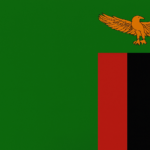
Malala Yousafzai, born on July 12, 1997, in Mingora, Swat Valley, Pakistan, is a name synonymous with courage, education, and unwavering advocacy for human rights. From an early age, Malala defied oppressive forces, boldly speaking out against the Taliban’s ban on girls’ education in her homeland. Surviving an assassination attempt in 2012, she emerged stronger, becoming the youngest-ever recipient of the Nobel Peace Prize in 2014. Malala’s journey is not just a personal triumph; it is a global beacon for the transformative power of education and the resilience of the human spirit. This introduction merely scratches the surface of the remarkable life of Malala Yousafzai, an individual whose impact reaches far beyond the borders of her native Pakistan.
Birth Date: Malala Yousafzai, a symbol of courage and resilience, was born on July 12, 1997, in Mingora, Swat Valley, Pakistan. Her birthplace, nestled in the scenic northwest of Pakistan, would later become the backdrop for her unwavering dedication to education and women’s rights.
Full Name: Malala’s full name, Malala Yousafzai, carries cultural significance. “Malala” is an Arabic name meaning “grief-stricken” or “sorrowful.” Despite the potential weight of such a name, Malala has turned her personal challenges into a source of inspiration for millions around the globe.
Education Activist: Malala’s journey as an education activist began at an early age when she courageously spoke out against the Taliban’s ban on girls’ education in her native Swat Valley. Her commitment to the cause of education, especially for girls, has transcended regional boundaries and resonated on the international stage.
Father’s Name: Ziauddin Yousafzai, Malala’s father, played a crucial role in shaping her activism. A passionate educational activist himself, he instilled in Malala the importance of education and equality. The father-daughter duo became powerful advocates for education, challenging societal norms in a region where such advocacy often comes at a great personal risk.
Early Activism: At the tender age of 11, Malala started documenting her life under the Taliban’s oppressive rule through a blog for BBC Urdu, showcasing not only her precocious writing skills but also her resilience in the face of adversity. This early activism foreshadowed her future role as a fearless spokesperson for education and equality.
Nobel Peace Prize: Malala made history in 2014 by becoming the youngest-ever recipient of the Nobel Peace Prize at the age of 17. This prestigious accolade solidified her position as a global symbol of courage and a beacon of hope for those fighting for education in regions facing socio-political challenges.
Attack and Recovery: On October 9, 2012, Malala survived a targeted assassination attempt by the Taliban. The brutal attack, in which she was shot in the head, shocked the world. However, Malala’s remarkable recovery became a testament to her strength and determination, inspiring people worldwide.
Medical Treatment: Following the assassination attempt, Malala was airlifted to Birmingham, England, for specialized medical treatment. Her recovery and subsequent life in the United Kingdom allowed her to continue her education and activism, further amplifying her voice on the global stage.
Book Author: In 2013, Malala co-authored the memoir “I Am Malala: The Girl Who Stood Up for Education and Was Shot by the Taliban.” This powerful narrative provided a firsthand account of her experiences, shedding light on the challenges faced by those advocating for education in regions grappling with extremism.
Global Symbol: Malala’s journey transformed her into a global symbol for the fight for girls’ education and women’s rights. Her resilience, eloquence, and unyielding commitment to justice have inspired countless individuals to stand up against oppression and work towards a world where every child, regardless of gender, has access to quality education.
UN Messenger of Peace: In April 2017, Malala Yousafzai was appointed the youngest-ever United Nations Messenger of Peace at the age of 19. This prestigious role recognized her tireless efforts in advocating for education and peace, providing her with a platform to address global issues and promote the importance of education as a fundamental right.
University of Oxford: Malala’s academic journey continued at the University of Oxford, where she began her studies in 2017. Pursuing a degree in Philosophy, Politics, and Economics (PPE), she demonstrated that education not only defines her advocacy but also remains a personal priority as she delves into higher learning on an international stage.
Malala Fund: In 2013, Malala co-founded the Malala Fund, a non-profit organization dedicated to advocating for girls’ education worldwide. The foundation’s initiatives focus on breaking down barriers that prevent girls from going to school, aiming to ensure 12 years of free, safe, and quality education for every girl.
Educational Impact: Malala’s advocacy has led to tangible changes in education, particularly for girls in Pakistan. The Malala Fund’s initiatives have contributed to increased awareness and efforts to improve the accessibility and quality of education for girls, leaving a lasting impact on communities and regions affected by educational inequality.
Recognition: Malala’s impactful work has garnered her numerous awards and honors. The honorary Canadian citizenship she received in 2017 and the honorary U.S. citizenship bestowed upon her in 2013 reflect the global recognition of her unwavering commitment to education and peace.
Height: Standing at approximately 5 feet 5 inches (165 cm), Malala’s physical stature belies the towering impact she has had on the global stage. Her resilience, intelligence, and commitment to education make her a giant in the realm of human rights and advocacy.
Weight: While Malala’s weight is not widely disclosed in public records, her influence in the realm of education and activism is immeasurable. Her impact transcends physical measures, emphasizing the weight of her words and actions in shaping conversations around human rights and equality.
Honorary Canadian Citizenship: In April 2017, Canada granted Malala Yousafzai honorary citizenship. This recognition highlighted her global impact and her role as a symbol of resilience and determination for individuals worldwide.
Honorary U.S. Citizenship: The United States granted Malala honorary citizenship in 2013, a rare honor reserved for those who have made exceptional contributions to American society and ideals. This recognition further underscored the international significance of her advocacy for education and peace.
Malala Day: July 12, Malala’s birthday, is celebrated as Malala Day worldwide. This annual celebration serves as a reminder of the importance of education and the need to continue the fight for the right of every child, irrespective of gender, to receive a quality education. Malala Day is a testament to the global impact of Malala’s advocacy and the ongoing struggle for educational equality.
Educational Impact in Pakistan: Malala’s activism has significantly contributed to increased awareness and efforts to improve education for girls in Pakistan. Her fearless advocacy has inspired positive changes, challenging societal norms and fostering a more inclusive and equitable educational environment for girls in the country.
Philanthropy: Beyond her advocacy work, Malala is actively involved in philanthropy, supporting various educational initiatives globally. Her commitment to philanthropy underscores her belief in the transformative power of education as a tool for positive change, not only in individual lives but also in communities and nations.
Social Media Presence: Malala utilizes social media platforms, notably Twitter, to share her thoughts, updates on her advocacy work, and promote her causes. Her active presence on social media amplifies her message, allowing her to connect with a global audience and mobilize support for the critical issues she champions.
Documentary Film: Malala is the subject of the documentary film “He Named Me Malala,” released in 2015. This intimate portrayal provides insights into her life, activism, and the challenges she has overcome. The documentary offers a powerful narrative that complements her written memoir, further showcasing the depth of her journey.
Time 100: Malala Yousafzai has been included in the Time 100 list of the world’s most influential people multiple times. This recognition reflects the global impact of her advocacy and the widespread acknowledgment of her efforts in promoting education, peace, and gender equality. Being featured in the Time 100 list underscores Malala’s enduring influence on the world stage and her continued dedication to creating positive change.









